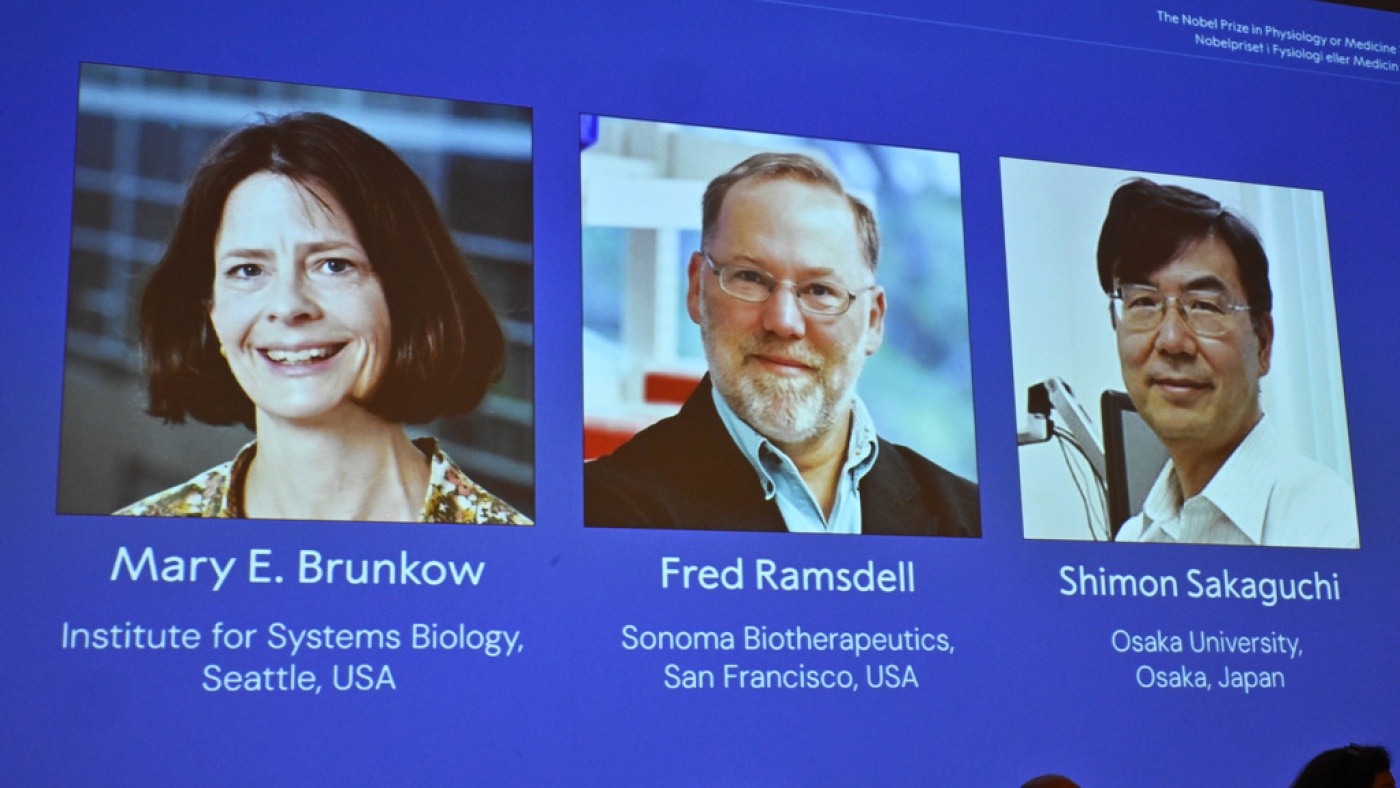Brunkow, Ramsdell, and Sakaguchi Win Nobel Prize for Immune System Regulation Breakthroughs
Three scientists received the 2025 Nobel Prize in Medicine for discovering how the immune system regulates itself, preventing autoimmune diseases and advancing treatments for cancer.
Overview
- Mary E. Brunkow, Fred Ramsdell, and Shimon Sakaguchi were awarded the 2025 Nobel Prize in Physiology or Medicine for their groundbreaking work on immune system regulation.
- Dr. Shimon Sakaguchi notably discovered regulatory T cells (T-regs) in 1995, identifying a new T cell subtype crucial for the immune system's self-regulation and preventing autoimmune diseases.
- Brunkow and Ramsdell identified a mutation in the Foxp3 gene in 2001, which Sakaguchi later linked to controlling T-reg development, explaining vulnerabilities to autoimmune conditions.
- Their collective discoveries elucidated how the immune system avoids attacking the body's own tissues, a fundamental mechanism known as peripheral immune tolerance, vital for health.
- This research has significantly advanced potential treatments for cancer and autoimmune diseases, with the three scientists sharing an 11 million Swedish kronor prize at the Dec. 10 ceremony.
Report issue

Read both sides in 5 minutes each day
Analysis
Center-leaning sources cover the Nobel Prize announcement with a neutral and informative approach. They prioritize factual reporting, clearly identifying the laureates and their discoveries, and providing objective context regarding the prize's significance and history. The coverage avoids loaded language, allowing the scientific achievement and the tradition of the awards to speak for themselves.
Articles (13)
Center (6)
FAQ
Regulatory T cells (T-regs) are a specialized subtype of T cells that suppress or regulate immune responses, preventing the immune system from attacking the body’s own tissues and thus maintaining tolerance and preventing autoimmune diseases. Their discovery was pivotal in understanding how the immune system distinguishes between self and non-self, a process known as peripheral immune tolerance.
By identifying the Foxp3 gene’s role in T-reg development and linking it to immune regulation, Brunkow, Ramsdell, and Sakaguchi provided the molecular basis for understanding autoimmune vulnerabilities and immune tolerance. This knowledge has enabled researchers to target T-reg pathways, improving immunotherapy for cancer (e.g., by blocking T-reg suppression to enhance anti-tumor immunity) and autoimmune diseases (e.g., by strengthening T-reg function to prevent immune attacks on healthy tissue).
The Foxp3 gene encodes a transcription factor essential for the development and function of regulatory T cells (T-regs). Mutations in Foxp3 can impair T-reg function, leading to a failure in immune tolerance and resulting in autoimmune diseases, as seen in conditions like IPEX syndrome. The discovery of this gene’s role explained why some individuals are vulnerable to autoimmune disorders.
The discovery of peripheral immune tolerance, facilitated by T-regs, is fundamental for understanding why the immune system does not typically attack the body’s own tissues. This mechanism is crucial for preventing autoimmune diseases and for the development of therapies that can either enhance or suppress immune responses in contexts such as organ transplantation, cancer, and autoimmune conditions.
Yes, there are ongoing efforts to manipulate T-regs for therapeutic purposes. In cancer, strategies aim to inhibit T-reg suppression to boost anti-tumor immunity, sometimes in combination with checkpoint inhibitors. In autoimmune diseases, approaches seek to enhance T-reg function to restore immune tolerance. Several clinical trials are targeting T-reg pathways, including the use of monoclonal antibodies and genetic engineering approaches.
History
- 15h

 7 articles
7 articles










